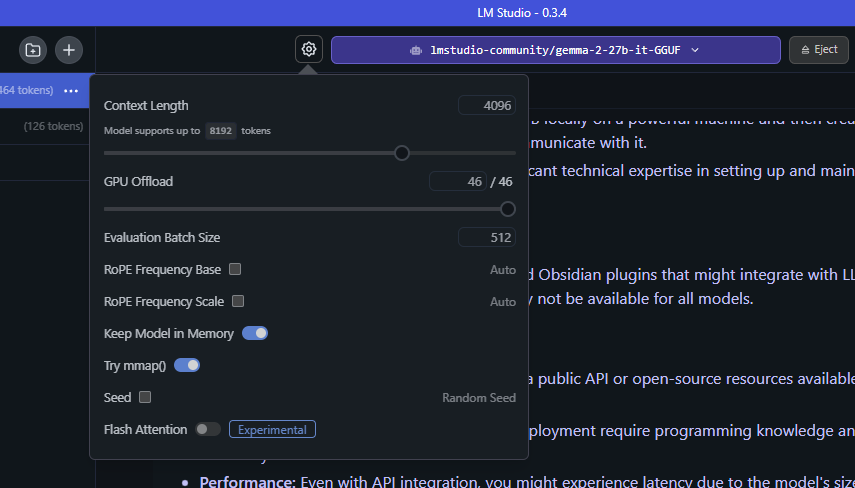Editor’s observe: This put up is a part of the AI Decoded sequence, which demystifies AI by making the know-how extra accessible, and showcases new {hardware}, software program, instruments and accelerations for GeForce RTX PC and NVIDIA RTX workstation customers.
Giant language fashions (LLMs) are reshaping productiveness. They’re able to drafting paperwork, summarizing internet pages and, having been skilled on huge portions of information, precisely answering questions on practically any subject.
LLMs are on the core of many rising use circumstances in generative AI, together with digital assistants, conversational avatars and customer support brokers.
Lots of the newest LLMs can run domestically on PCs or workstations. That is helpful for quite a lot of causes: customers can hold conversations and content material non-public on-device, use AI with out the web, or just make the most of the highly effective NVIDIA GeForce RTX GPUs of their system. Different fashions, due to their dimension and complexity, do no’t match into the native GPU’s video reminiscence (VRAM) and require {hardware} in giant knowledge facilities.
Nevertheless, Iit i’s potential to speed up a part of a immediate on a data-center-class mannequin domestically on RTX-powered PCs utilizing a way referred to as GPU offloading. This enables customers to profit from GPU acceleration with out being as restricted by GPU reminiscence constraints.
Measurement and High quality vs. Efficiency
There’s a tradeoff between the mannequin dimension and the standard of responses and the efficiency. Generally, bigger fashions ship higher-quality responses, however run extra slowly. With smaller fashions, efficiency goes up whereas high quality goes down.
This tradeoff isn’t at all times simple. There are circumstances the place efficiency is perhaps extra necessary than high quality. Some customers might prioritize accuracy to be used circumstances like content material era, since it could actually run within the background. A conversational assistant, in the meantime, must be quick whereas additionally offering correct responses.
Essentially the most correct LLMs, designed to run within the knowledge middle, are tens of gigabytes in dimension, and should not slot in a GPU’s reminiscence. This may historically stop the appliance from profiting from GPU acceleration.
Nevertheless, GPU offloading makes use of a part of the LLM on the GPU and half on the CPU. This enables customers to take most benefit of GPU acceleration no matter mannequin dimension.
Optimize AI Acceleration With GPU Offloading and LM Studio
LM Studio is an software that lets customers obtain and host LLMs on their desktop or laptop computer laptop, with an easy-to-use interface that enables for intensive customization in how these fashions function. LM Studio is constructed on high of llama.cpp, so it’s totally optimized to be used with GeForce RTX and NVIDIA RTX GPUs.
LM Studio and GPU offloading takes benefit of GPU acceleration to spice up the efficiency of a domestically hosted LLM, even when the mannequin can’t be totally loaded into VRAM.
With GPU offloading, LM Studio divides the mannequin into smaller chunks, or “subgraphs,” which signify layers of the mannequin structure. Subgraphs aren’t completely fastened on the GPU, however loaded and unloaded as wanted. With LM Studio’s GPU offloading slider, customers can determine what number of of those layers are processed by the GPU.

For instance, think about utilizing this GPU offloading approach with a big mannequin like Gemma-2-27B. “27B” refers back to the variety of parameters within the mannequin, informing an estimate as to how a lot reminiscence is required to run the mannequin.
In response to 4-bit quantization, a way for lowering the scale of an LLM with out considerably lowering accuracy, every parameter takes up a half byte of reminiscence. Which means that the mannequin ought to require about 13.5 billion bytes, or 13.5GB — plus some overhead, which usually ranges from 1-5GB.
Accelerating this mannequin totally on the GPU requires 19GB of VRAM, obtainable on the GeForce RTX 4090 desktop GPU. With GPU offloading, the mannequin can run on a system with a lower-end GPU and nonetheless profit from acceleration.
In LM Studio, it’s potential to evaluate the efficiency influence of various ranges of GPU offloading, in contrast with CPU solely. The under desk exhibits the outcomes of working the identical question throughout totally different offloading ranges on a GeForce RTX 4090 desktop GPU.

On this explicit mannequin, even customers with an 8GB GPU can take pleasure in a significant speedup versus working solely on CPUs. After all, an 8GB GPU can at all times run a smaller mannequin that matches totally in GPU reminiscence and get full GPU acceleration.
Reaching Optimum Stability
LM Studio’s GPU offloading function is a strong instrument for unlocking the total potential of LLMs designed for the info middle, like Gemma-2-27B, domestically on RTX AI PCs. It makes bigger, extra advanced fashions accessible throughout your entire lineup of PCs powered by GeForce RTX and NVIDIA RTX GPUs.
Obtain LM Studio to attempt GPU offloading on bigger fashions, or experiment with quite a lot of RTX-accelerated LLMs working domestically on RTX AI PCs and workstations.
Generative AI is remodeling gaming, videoconferencing and interactive experiences of all types. Make sense of what’s new and what’s subsequent by subscribing to the AI Decoded e-newsletter.